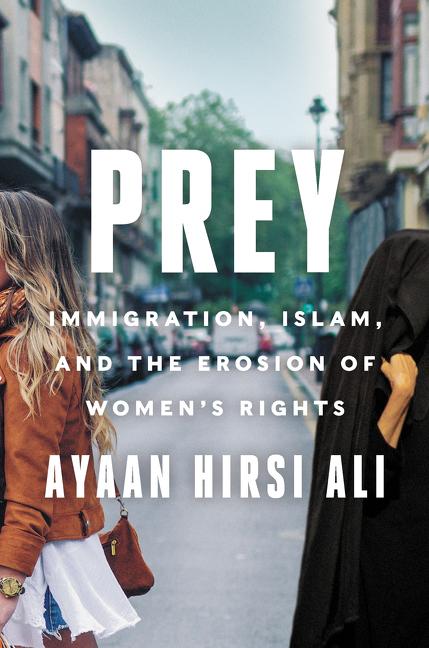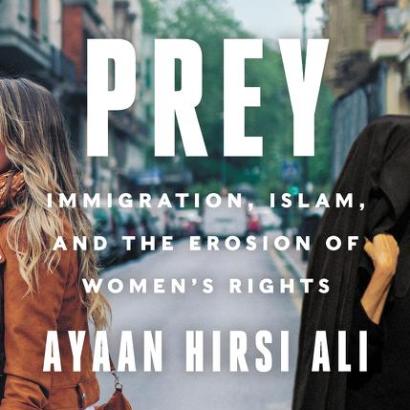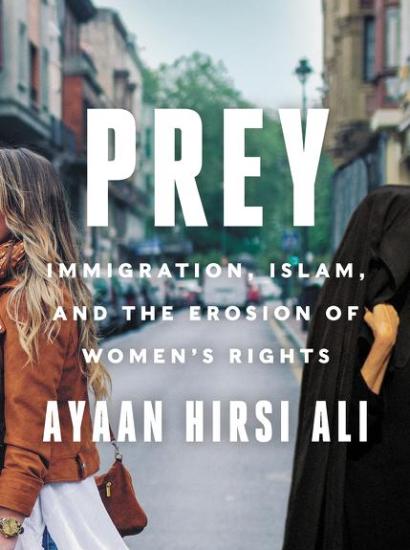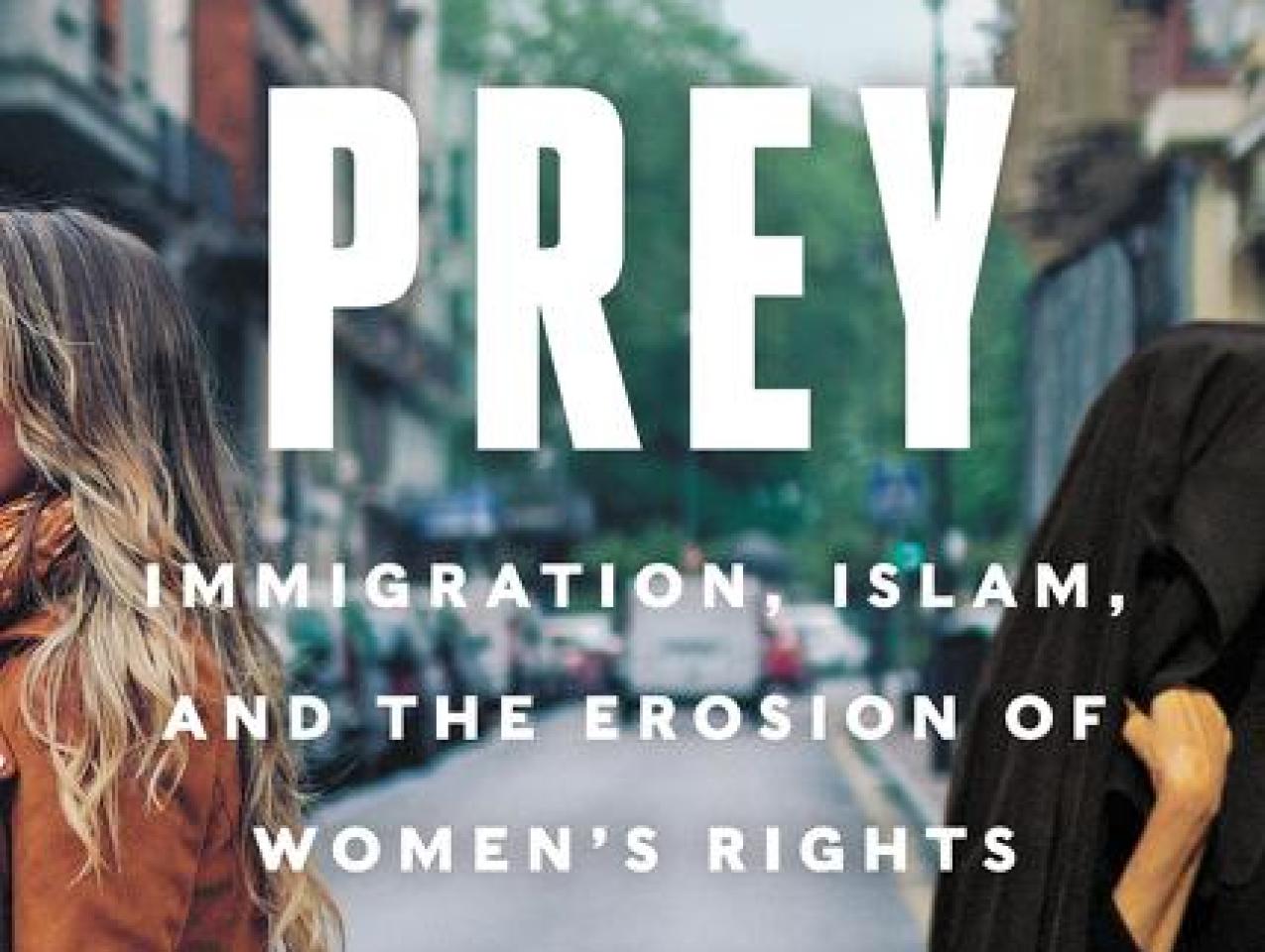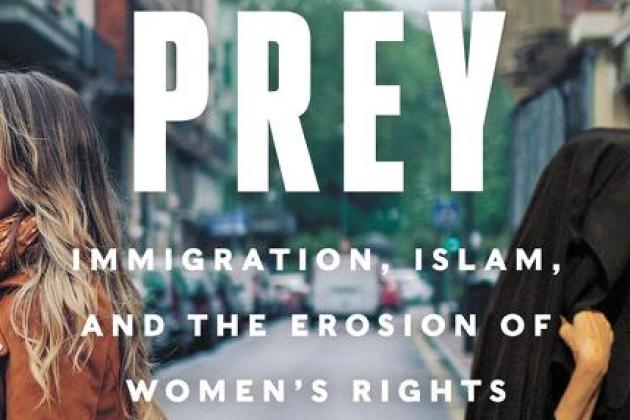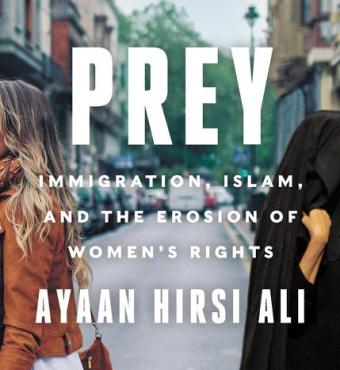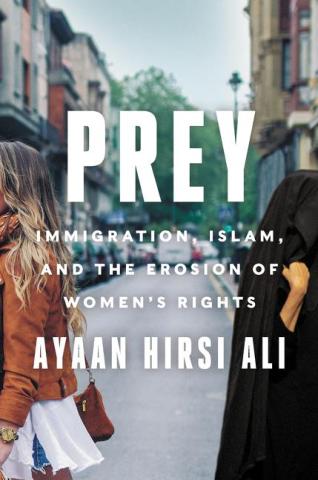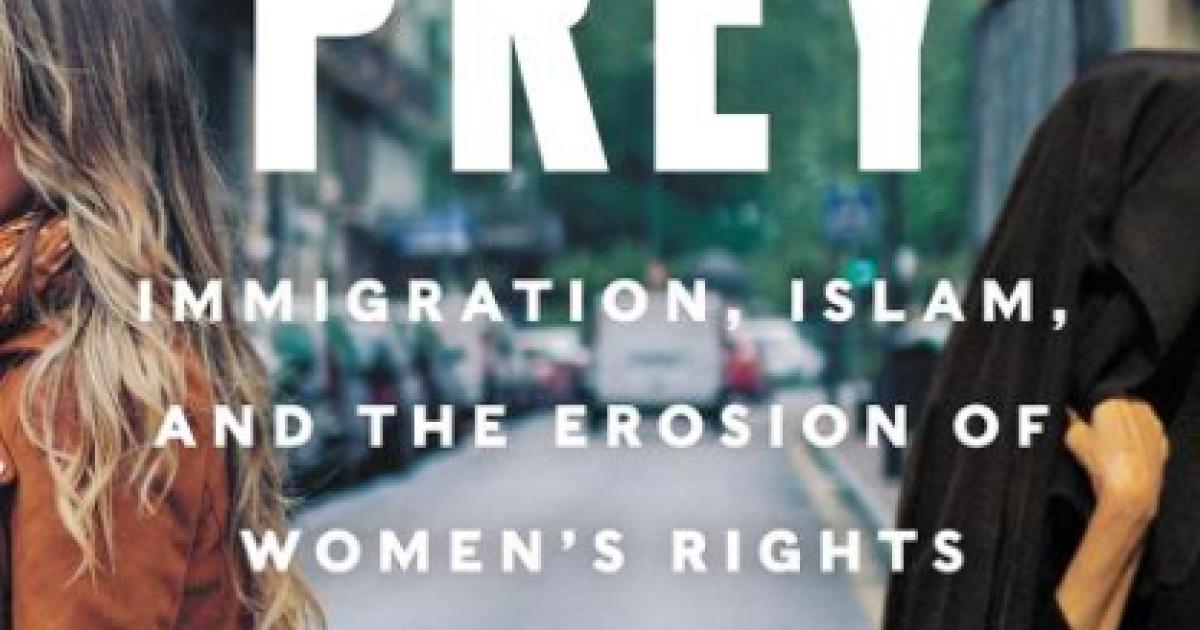In this interview, Research Fellow Ayaan Hirsi Ali talks about her new book, Prey: Immigration, Islam, and the Erosion of Women’s Rights.
Hirsi Ali explains how the surge of migration into Europe since 2014 has had the unintended consequence of increasing rates of sexual violence against women. Many of these offenses have been committed by young men from Muslim-majority countries, where women are not afforded the same legal protections as they are in the West. She argues that European governing elites, and even many women who hold positions of power and influence, have either ignored or have not appropriately addressed the mistreatment of women in their countries. Furthermore, Hirsi Ali explains that the failure of immigration policy in Europe has resulted in a deeply polarized political culture, between nativists on one hand who despise new arrivals to their country, and Islamists on the other who resist assimilation and seek to reshape the cultural norms of the West. She concludes that the rise of these extremist elements within European society limits the ability for rational voices to speak up and advance policies that can adequately protect women’s rights.
Why did you write Prey?
We are currently witnessing a shift in the attitude toward women in Europe, especially in the public space. Working-class women have reported, at high rates, being sexually harassed or assaulted by young male asylum seekers during the recent surge of immigration into European countries. These immigrants have largely come from Muslim-majority countries, where historically, women have not been treated with equal protection under the law. European leaders aren’t acknowledging that this problem has roots in the migrant crisis that has been ongoing since 2014 and have thus been reluctant to pursue policies that adequately protect women’s rights.
It has been incredibly disappointing that the working-class women, who have been experiencing these changes in their lives and neighborhoods, have not been encouraged to speak up during the “Me Too” movement of the last few years. The intention of Prey is to give a voice to this issue.
What are the root causes of Europe’s immigration crisis?
I’m an immigrant. Immigrants have historically contributed greatly to their new countries, whether in America or on the European continent. I think people moving from one place to another in search for a better life is in itself noble. What has been troubling for Europe is that, since the 1950s and 1960s, there are communities of people who began arriving from societies with radically different views and values. The western liberal lifestyle has been challenged by adherents to the Muslim religion. Debates and disagreements about views and values are fine, but the question about who is going to adapt to whose set of core values has never been resolved. The large flows of Muslim immigrants from 2014 to today has brought this issue to a state of crisis.
How has European leadership and society thus far responded?
When it comes to the European leadership, there’s been a dereliction of duty. They find such crises too complicated, and they prefer to just move on to other issues. When it comes to what we used to call “feminists,” women organized in the cause of trying to improve the lives of other women, they have decided not to talk about these issues because they have other priorities, such as getting women promoted to positions of leadership and “shattering the glass ceiling.” We find that high-income-earning women are not really engaged with issues impacting women who are working class, immigrants, or in vulnerable positions. Immigration continues apace into the continent of Europe, from places like Africa, South Asia, and the Middle East, where large numbers of women are mistreated.
If you look at the data points, just who is immigrating to Europe now? It’s mostly young men from Muslim-majority countries. This reality is having an impact on the lives and livelihoods of so many people in Europe. The people who are bearing the heaviest burden of the unintended consequences of immigration are women.
We are living in the age of identity politics and wokeism. It’s fine to talk about the sins of Harvey Weinstein and the rest of Hollywood, but it’s absolutely not okay to talk about the mass rapes, the grooming gangs, and the unsafe spaces for women in different parts of Europe, because the women who are affected are not organized, they don’t have the money, and they don’t have the voice. This is the subject of Prey.
Does this growing violence impact women within migrant populations as well?
Prey is really about the women who are native to Europe and how the negative side effects of immigration have spilled over into their lives. However, women from Europe’s Muslim communities also face enormous challenges with immigration. Many women have been abducted from European countries and taken to the countries of their parents’ origins. Others have been forced into marriage and female genital mutilation. These second-generation women are also being used as “immigration tickets,” so that the men who marry them can arrive in Europe as legal immigrants.
European officials, however, have been largely ignorant of the reality that many immigrant men would behave violently or show contempt for native-born European women. In the book, I tell several anecdotes that show that these migrants weren’t attacking these women for reasons of age, beauty, or the way they dressed. Very modest women, who covered themselves from head to toe, told me that they were subjected to the same type of harassment as those outfitted in more modern dress. I also found that girls, as young as eleven, twelve, and thirteen, were also harassed, as well as women in their seventies.
Have these cases of sexual assault and harassment caused a nativist backlash against immigration in Europe?
Nativist sentiment and extreme right-wing reactions have been part of Europe’s politics for a long time. Two decades ago, many Europeans complained that immigrants were taking their jobs. The next stage of these Europeans’ grievances was that immigrants were changing the character of their neighborhoods. However, these women’s grievances against unmanaged immigration should not be characterized as nativist or right-wing extremism. The women are not anti-immigrant, and some of them actually vote for left-wing political parties.
These women are faced with a crisis they don’t understand. Many women who walk onto the streets are propositioned for sexual favors, and others get physically attacked. They begin wondering, “Should I even take public transportation anymore? Should I walk the streets?” This is a reality that is new to European women.
This new reality has inevitably allowed populist and right-wing parties to find a new issue in their anti-immigrant and anti-Islam campaigns. Russian trolls are also exploiting this crisis to further polarize and destabilize European political systems. Then there are radical Islamist clerics who use their pulpits to say that “women wouldn’t be harassed if they covered themselves up from head to toe.” Ostensibly, these clerics are attempting to shape norms in the western world that would set us back centuries. So, the loud voices of nativists and Islamists are drowning out people representing a centrist view in politics, academia, and the media, who can most sensibly address this issue.
Do you also find in your research that European officials are going out of their way to accommodate codes of conduct promoted by Islamists?
Yes. This actually started as early as the 1980s. Europeans knew that women were subject to repression and violence in these immigrant communities but decided that nothing would be done about it, because such incidents remained generally isolated from larger European society. Europeans believed, “If immigrant women want to be emancipated, then that’s a problem for their community to solve. We can’t do it for them.” It was difficult for native European women to find common ground with their immigrant counterparts. But now, because we’ve looked the other way, this issue is sadly affecting everyone.
How should this issue be fixed in a manner that protects women but also does not alienate immigrant populations?
I think the best strategy is to implement integration programs for immigrants and give them a great deal of priority. When you use the word “fix,” it’s a very American term. Americans have problems and they “fix” them. But with some of these problems, you can’t use the word “fix.” The real issue is, how do we start the process of correcting these problems? I also think European governments, policy makers, and social and cultural leaders are making a big mistake by saying, “There are no cultural problems to see here and the men who are misbehaving are just individual misfits. We should treat this like any other crime."
Just before I spoke to you, I was on the phone with a man living in Sweden who is originally from Afghanistan. He is trying to develop integration programs for Sweden, which has been a basket case when it comes to immigration issues. He believes it’s actually possible to bring about positive change in these young men who are behaving badly. His approach is to tell them, “We acknowledge that you have come here from a different culture. But now, you are in a new culture, and we can support your integration into European society.” These types of programs should have carrots and sticks. The carrots are that if migrants graduate from the integration program, then they can demonstrate and apply their knowledge. If they fail, there will be consequences. I have seen countries like Austria and Denmark apply some of these programs, and I’ve seen them work.
How has the COVID-19 pandemic impacted this issue?
One obvious impact is that because everyone is on lockdown, the number of confrontations between men and women in the streets is down significantly from the prior year. However, rates of domestic violence have risen substantially.
In the case of the pandemic, the governments have been less restrained than usual in curtailing individual freedoms. But when you look at problems involving immigration, we have been told for decades that there is nothing government can do by way of establishing assimilation programs, because they might compromise the civil rights of people.
That’s laughable. If you are a woman from a working-class neighborhood in Europe, the same government that kept you home on lockdown, closed down your business, will say to you once the pandemic has ended: “We can’t protect you from sexual harassment or violence, because that will constrain the civil liberties of the perpetrators.”
Ultimately, the unintended consequences of unmitigated immigration can only be addressed by direct and candid conversations across Europe’s leadership and society. Only then can policy solutions be developed that protect the rights of all people under the law.







